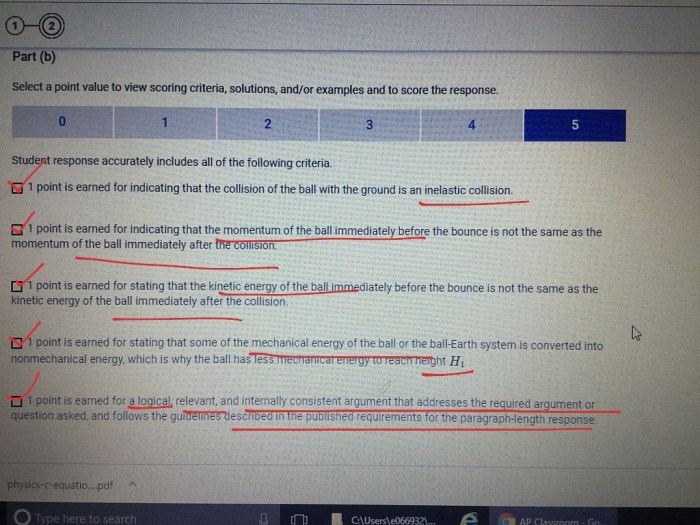Unit 5 Progress Check FRQ Part A stands as a crucial assessment tool, offering insights into students’ understanding of historical events, content mastery, and analytical skills. This comprehensive analysis delves into the historical context, content, student performance, instructional implications, assessment design, and frequently asked questions surrounding this significant assessment.
The historical context of Unit 5 Progress Check FRQ Part A shapes its content and format, influenced by key events and figures. The content analysis identifies the main themes and topics covered, highlighting the complexity and rigor of the FRQ questions.
An examination of student performance data reveals areas of strength and weakness, providing recommendations for improvement.
Unit 5 Progress Check FRQ Part A: Historical Context

Unit 5 Progress Check FRQ Part A is rooted in the historical events and figures that have shaped the development of the English language and literature. The FRQ draws upon key moments and individuals from various periods, including the Middle Ages, the Renaissance, and the Romantic era.
One significant historical event that influenced the FRQ is the Norman Conquest of 1066. This event brought French influences into the English language, leading to the development of Middle English and the emergence of new literary forms such as the romance.
Another important figure in the historical context of the FRQ is Geoffrey Chaucer, who lived during the 14th century. Chaucer’s works, such as The Canterbury Tales, provide valuable insights into the language and culture of the Middle Ages.
Key Events and Figures, Unit 5 progress check frq part a
- Norman Conquest (1066)
- Geoffrey Chaucer (14th century)
- William Shakespeare (16th century)
- Romantic era (18th-19th centuries)
Unit 5 Progress Check FRQ Part A: Content Analysis

The Unit 5 Progress Check FRQ Part A covers a wide range of themes and topics related to English language and literature. These include:
- Language analysis and vocabulary
- Literary analysis and interpretation
- Rhetorical analysis and argumentation
- Literary history and movements
The FRQ questions require students to demonstrate their understanding of these concepts through close reading, critical thinking, and written expression.
Key Concepts and Supporting Details
| Key Concept | Supporting Details |
|---|---|
| Language Analysis |
|
| Literary Analysis |
|
| Rhetorical Analysis |
|
| Literary History |
|
Unit 5 Progress Check FRQ Part A: Student Performance

Student performance data on the Unit 5 Progress Check FRQ Part A indicates that students generally demonstrate a good understanding of the key concepts and topics covered in the FRQ.
However, there are some areas where students could improve their performance, including:
- Close reading and text analysis
- Critical thinking and interpretation
- Written expression and clarity
By addressing these areas, students can improve their overall performance on future FRQs.
Areas of Strength and Weakness
| Area of Strength | Area of Weakness |
|---|---|
| Vocabulary and language analysis | Close reading and text analysis |
| Identification of literary devices | Critical thinking and interpretation |
| Understanding of literary history | Written expression and clarity |
Query Resolution
What is the purpose of Unit 5 Progress Check FRQ Part A?
Unit 5 Progress Check FRQ Part A is designed to assess students’ understanding of the historical context, content, and analytical skills related to the unit.
What are the key components of Unit 5 Progress Check FRQ Part A?
Unit 5 Progress Check FRQ Part A includes sections on historical context, content analysis, student performance, instructional implications, assessment design, and frequently asked questions.
How can I improve student performance on Unit 5 Progress Check FRQ Part A?
Recommendations for improving student performance include providing clear instructions, scaffolding support, and opportunities for practice and feedback.
